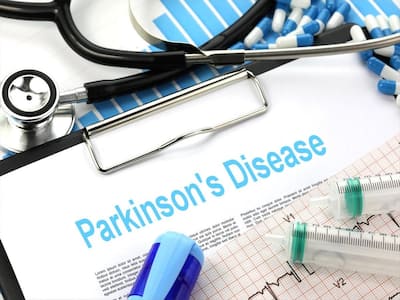
Dr Saurabh Bansal, a Senior Consultant of Neurology explains that Parkinson’s diseases encompasses a range of non-motor symptoms that can significantly impact a patient’s quality of life.
Parkinson’s disease is often characterized by its prominent motor symptoms like tremors, rigidity, and slowness of movement. However, this complex neurodegenerative disorder encompasses a range of non-motor symptoms that significantly impact a patient’s quality of life.
Dr Saurabh Bansal a Senior Consultant of Neurology at Fortis Memorial Research Institute spoke to TheHealtsite.com and said, “Recent advancements in medical research have shed light on these non-motor aspects and have led to the development of novel therapies aimed at providing comprehensive care.”
The Hidden Burden of Non-Motor Symptoms
DrSaurabh Bansal went on to say that while the motor symptoms of Parkinson’s disease are most noticeable, non-motor symptoms can be equally debilitating, if not more. These symptoms can include cognitive changes, mood disorders, sleep disturbances, autonomic dysfunction, and sensory problems. Anxiety, depression, cognitive impairment, and sleep disturbances, for example, can significantly affect a patient’s mental well-being and daily functioning. Here is all you need to know about the symptoms.
Cognitive Impairment And Mood Disorders
Cognitive impairment is a common non-motor symptom in Parkinson’s disease, ranging from mild cognitive impairment to more severe conditions like dementia. Patients might experience difficulties in memory, attention, and problem-solving. Recognizing the impact of cognitive impairment, researchers have begun exploring cognitive rehabilitation techniques and medications that target these cognitive deficits.
Mood disorders, such as depression and anxiety, often coexist with Parkinson’s disease. These emotional challenges can exacerbate other symptoms and reduce overall quality of life. Novel therapies are being investigated to address mood disorders, including non-pharmacological approaches like psychotherapy and lifestyle interventions.
Sleep Disturbances And Autonomic Dysfunction
Sleep disturbances, like insomnia and rapid eye movement sleep behavior disorder (RBD), are prevalent among Parkinson’s patients. RBD, characterized by acting out dreams during sleep, can lead to injuries and sleep disruption for both patients and their partners. Emerging therapies aim to regulate sleep patterns and improve the overall sleep quality of patients.
Autonomic dysfunction, involving the involuntary functions of the body, can manifest as orthostatic hypotension, constipation, and urinary problems. These symptoms further complicate the disease management. Innovative treatments, including medications and lifestyle adjustments, are being explored to address autonomic dysfunction and alleviate related discomfort.
READ RELATED: 6 Restaurant Chains That Serve the Best Wraps
Innovative Approaches For Holistic Care
Recognizing the importance of comprehensive care, researchers are investigating therapies that go beyond motor symptom management. Multidisciplinary approaches that involve neurologists, psychiatrists, psychologists, and other healthcare professionals are becoming increasingly common to address the diverse needs of Parkinson’s patients.
Virtual reality (VR) and wearable technologies are also gaining attention as tools to address non-motor symptoms. VR-based exercises can help improve cognitive function and balance, while wearables can monitor sleep patterns and provide valuable data for treatment adjustments.
A Vital Frontier: Deep Brain Stimulation
Deep Brain Stimulation (DBS) stands out among these cutting-edge management options. It is a promising approach for treating both motor and non-motor symptoms of Parkinson’s disease. DBS can provide relief from cognitive deficits, emotional disorders, and even sleep issues by focusing on brain regions.
A Holistic Future
The advancement of research and technology has opened new doors in addressing the non-motor aspects of Parkinson’s disease. As our understanding of these complex symptoms deepens, the development of tailored therapies is providing hope for patients who face challenges beyond the realm of motor symptoms. By embracing a holistic approach that encompasses physical, mental, and emotional well-being, we can work toward enhancing the overall quality of life for individuals living with Parkinson’s disease.
Total Wellness is now just a click away.
Follow us on
Don’t Miss Out on the Latest Updates.
Subscribe to Our Newsletter Today!
window.addEventListener(‘load’, (event) => {
$(‘#commentbtn’).on(“click”,function(){
(function(d, s, id) { var js, fjs = d.getElementsByTagName(s)[0]; if (d.getElementById(id)) return; js = d.createElement(s); js.id = id; js.src = “//connect.facebook.net/en_US/sdk.js#xfbml=1&version=v2.3”; fjs.parentNode.insertBefore(js, fjs);}(document, ‘script’, ‘facebook-jssdk’));
$(“.cmntbox”).toggle();
});
});





